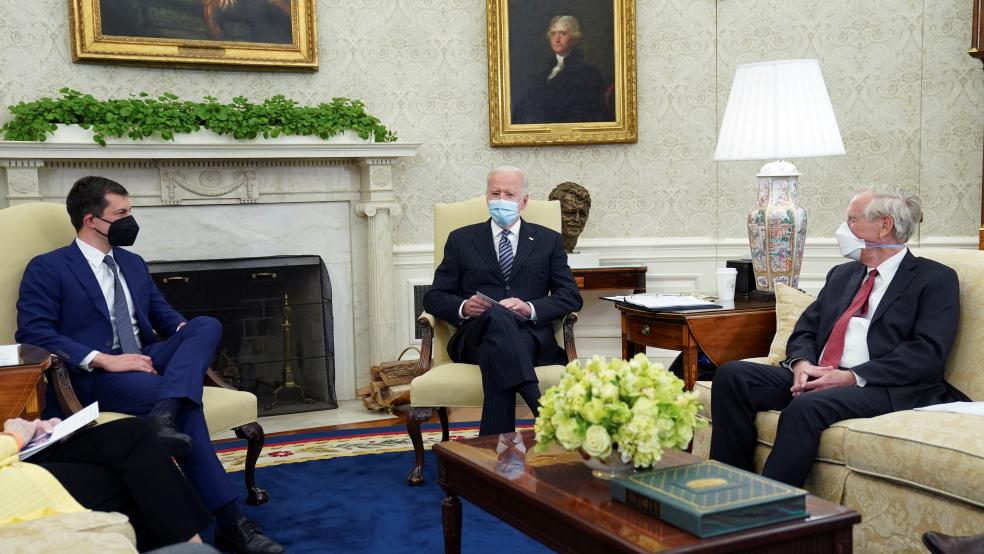President Joe Biden held his second bipartisan infrastructure meeting with lawmakers on Monday, as Republicans try to craft a scaled-back counteroffer to the president’s $2.3 trillion plan and Democrats consider whether or how long they should try to work with the GOP.
Biden told reporters Monday that he was ready to discuss not just what is included in any infrastructure legislation but also how to pay for it. “I am prepared to compromise, prepared to see what we can do and what we can get together on. It's a big package, but there's a lot of needs,” he said.
The lawmakers meeting with the president were all senators or representatives who had been governors or mayors — chosen to meet, Biden said, “because they know what it's like to make things work, to make sure that you get things done and deal with infrastructure and the needs of your community.”
Behind the scenes: Monday’s meeting was just part of a broader outreach effort by the White House, as CNN’s Paul LeBlanc and Phil Mattingly report.
“For the last three weeks, Cabinet officials and senior White House aides have fanned out in a full-scale part-listening and part-sales-pitch tour on Capitol Hill, according to administration officials, with phone calls and meetings across both chambers and parties and with top staffers of key leadership and committee offices.
“Biden's legislative affairs team had made 139 calls to members and top staffers as of last week, with Cabinet secretaries holding 27 calls directly to members, including seven Republicans. Biden's policy teams have held 26 staff briefings, including nine at the member level, including one for GOP leadership, officials said.
“Administration officials are working on multiple fronts to gauge what pathways might exist with Republicans, and perhaps more crucially, where Democrats are on their policy preferences given the exceedingly narrow majorities in the House and Senate.”
At the same time, a group of 10 senators from each party is also trying to figure out what the contours of a bipartisan infrastructure package might look like — and how to pay for it, Axios’s Hans Nichols reported Sunday. And in an appearance on “Fox News Sunday,” Sen. John Cornyn (R-TX) joined Sen. Chris Coons (D-DE) in suggesting that a smaller, $800 billion package more focused on roads, bridges and the like could win bipartisan support. “There is a core infrastructure bill that we could pass…So let’s do it and leave the rest for another day and another fight,” Cornyn said.
Democrats eye 25% corporate tax rate, not 28%: Even as the two parties warily feel each other out, a number of Democrats are pushing the White House to raise the corporate tax rate from 21% to 25%, shy of the 28% Biden has proposed. Axios’s Nichols reported that Senate Democrats are likely to settle on 25%, and the president will go along. “Democrats close to the White House expect Biden will accept 25% and pocket it as a political win,” Nichols said, adding that Biden’s proposal to raise the rate U.S. multinational corporations pay on foreign earnings from 10.5% to 21% is likely to survive intact.
The bottom line: There’s a long way to go before any infrastructure legislation is ready. “The many dynamics at play are setting the stage for a lengthy and laborious path for getting the infrstructure [SIC] package to the president’s desk,” The Washington Post reports. “Unlike Biden’s coronavirus relief bill, which he signed in his seventh full week in office, there is no urgent deadline for an ambitious plan on the scale the White House wants, all but guaranteeing the legislative fight will take months.”





